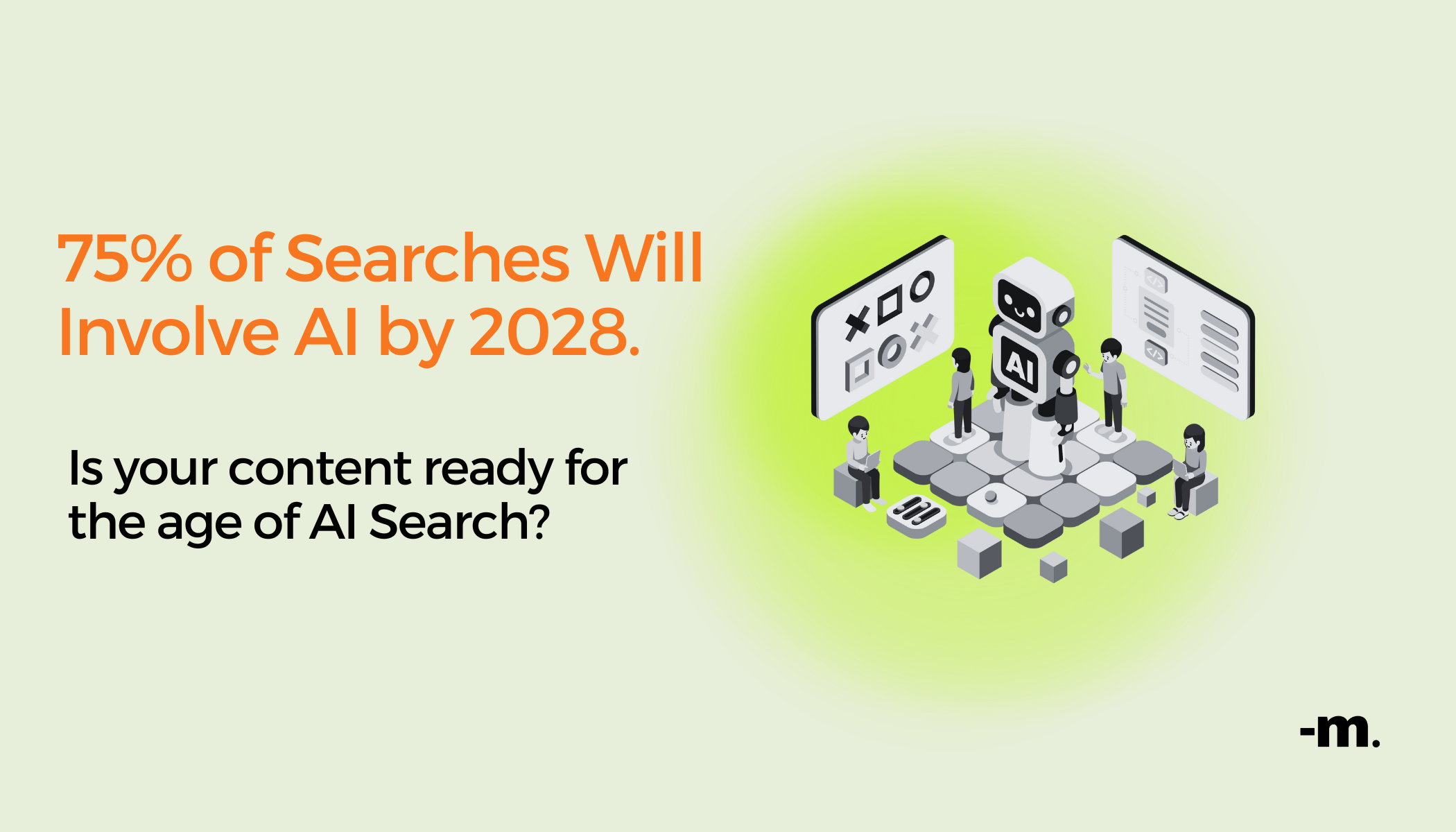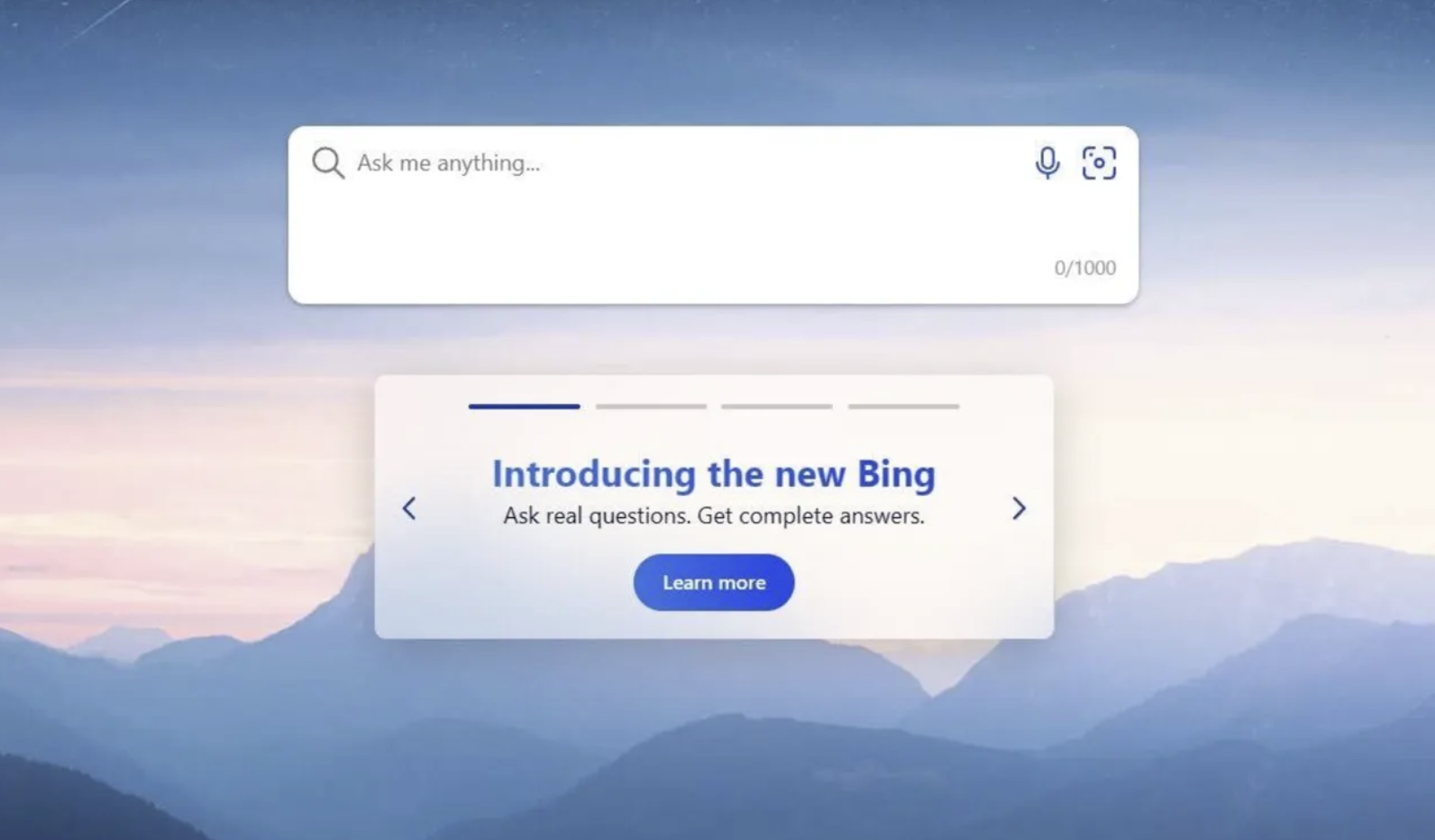How ChatGPT May Transform Search Engines and SEO
At Microsoft's conference last Tuesday, the announcement was made that ChatGPT will be integrated into the Bing search engine. How will ChatGPT...
4 min read
Markezing Team : Oct 22, 2025 4:58:49 PM

We’ve entered a turning point in how people find information online.
According to McKinsey & Company’s 2025 “AI Discovery Survey,” half of all consumers already use AI-powered search tools — like Google’s AI Overview, ChatGPT, Perplexity, or Gemini — to research products and make purchasing decisions. By 2028, McKinsey projects that over 75 % of searches will involve generative AI in some form, influencing more than $750 billion in consumer spending.
That shift carries enormous implications. Traditional SEO strategies — designed to win clicks from keyword-based search results — are losing ground as AI engines summarize answers directly on the results page. McKinsey warns that as decision-making moves “upstream” into AI platforms, 20 %–50 % of website traffic from traditional search could disappear.
In other words: you might still rank #1 on Google, but if the AI overview summarizes your content before users click, you’ll never see the traffic.
Facing the surge of AI content, Google’s official position (as of its February 2023 Search Blog) is clear:
“Using AI or automation to generate content isn’t against our guidelines — as long as it’s helpful, original, and created for people first.”
Google’s ranking systems focus on E-E-A-T: Experience, Expertise, Authoritativeness, and Trustworthiness. In this framework, who wrote it matters less than why it was written and how much genuine value it provides.
That means AI-assisted content can perform just as well — or even better — than human-only writing, if it reflects real insight, first-hand experience, and helpful structure.
But mass-produced, low-effort text — sometimes called “AI slop” — is more likely to be filtered out by algorithms designed to detect redundancy and lack of originality.
Google’s message is simple: AI is fine, as long as you’re still writing for humans.
The new AI-search landscape challenges businesses on two fronts:
Visibility risk: As McKinsey notes, AI summaries often pull from hundreds of sources, not just your website. Even leading brands can fail to appear in AI-generated answers, because AI models weigh third-party reviews, user-generated content, and niche publishers as heavily as official brand sites.
Content dilution risk: With AI making it easy for anyone to publish, the web is flooded with repetitive content. Search engines now look for originality, structure, and credibility signals — not volume.
Together, these trends mean that traditional SEO metrics like keyword density or backlink count are no longer enough. Businesses must adapt both the content they create and the way they distribute it.
Many companies initially embraced AI writing tools to “scale content.” It worked for a while — more blogs, more keywords, faster. But as Google’s algorithms and AI search features mature, that strategy backfires.
McKinsey’s data shows that AI-powered search now filters aggressively for relevance. Instead of ranking similar articles equally, generative search favors fresh, specific, expert-driven answers. If multiple sites say the same thing, only one may appear — and often it’s the one with real data or lived experience.
Businesses that rely on AI text without adding unique expertise risk becoming invisible, even if they post consistently.
McKinsey introduces a new concept: GEO — Generative AI Engine Optimization.
Just as SEO helped brands appear in traditional search results, GEO focuses on how AI systems like Gemini or ChatGPT select and summarize sources.
Winning in this environment means:
Understanding which questions your audience is asking AI search engines.
Identifying which data sources AI pulls from (e.g., forums, publications, reviews).
Structuring your content so it can be easily recognized and cited by AI models.
Here’s how to adapt your content strategy to the age of AI search:
Before publishing anything, ask: Would this genuinely help my audience?
Google’s algorithms now reward content that demonstrates experience — case studies, original research, real customer stories. Instead of generating 50 AI articles, publish five that include firsthand data and actionable advice.
AI is excellent for ideation, outlining, summarizing — not for judgment or originality.
Use it to speed up research or content structure, but keep humans in charge of insight, tone, and accuracy. Add your unique industry perspective — that’s what AI can’t replicate.
AI models read differently from humans. To appear in AI summaries or overviews, structure your content with:
Clear section headers and short paragraphs.
FAQ sections answering direct, conversational questions.
Schema markup and structured data so AI can identify your key points.
Explicit statements of authority, such as author credentials or company experience.
This not only improves your human SEO but also increases your chances of being cited in generative AI outputs.
Because AI overviews reduce clicks, look at deeper metrics: time on page, return visitors, newsletter sign-ups. The new measure of success isn’t just ranking — it’s attention and trust.
McKinsey emphasizes the “zero-click future.” As more answers stay on the search page, businesses must build owned channels: newsletters, communities, podcasts, and social ecosystems where you control the relationship.
SEO gets you discovered; owned channels keep you remembered.
Treat AI visibility as a new marketing discipline. Build cross-functional teams that combine SEO, data, and content strategy. Track which AI engines (Google AI, Perplexity, ChatGPT) reference your brand. Test prompts that mention your product category and measure where you appear.
The old SEO playbook was about beating algorithms. The new playbook is about feeding algorithms high-quality, structured, and credible information that reflects human expertise.
As McKinsey notes, “visibility is not guaranteed.” Even well-known brands risk disappearing from AI-driven search if they don’t optimize for credibility, not just discoverability.
At the same time, Google’s guidance reminds us that authenticity still wins. AI can help scale your ideas — but it’s your voice, your expertise, and your intent that earn trust, both from readers and algorithms.
Ready to future-proof your content strategy?
Discover how AI-assisted creation, structured content, and GEO-ready optimization can help your brand stay visible in the age of AI search.

At Microsoft's conference last Tuesday, the announcement was made that ChatGPT will be integrated into the Bing search engine. How will ChatGPT...

HubSpot has recently released the public beta version of AI-powered content assistant. With the free AI Content Writer, you can ask AI to generates...

Artificial intelligence (AI) has revolutionized the way we create content, and there are many commercial AI-powered tools that can help you produce...